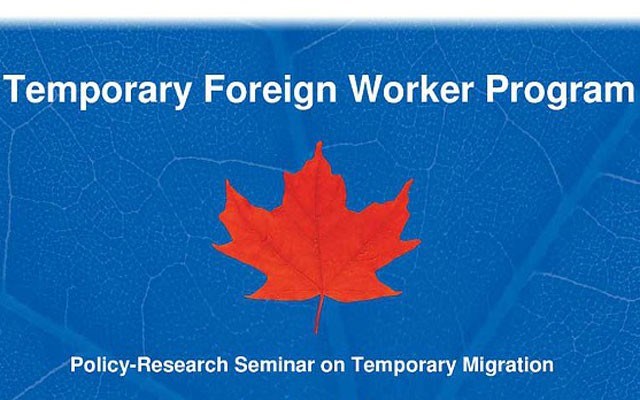Recent changes to Ottawa's Temporary Foreign Worker Program (TFWP) give officials greater authority to ensure compliance, but Whistler's largest employer says the new regulations won't have a significant impact on current practices.
On Dec. 31, new rules came into effect giving government officials the authority to conduct workplace inspections without a warrant and blacklist employers who are not in compliance with the program. Officials can now interview foreign workers about their working conditions and request documents proving they are in accordance with the TFWP. Work permits can be suspended or revoked if it's determined an employer provided false information that has or will have a negative impact on the Canadian labour market.
"This is quite significant because if employers like Whistler Blackcomb or a major hotel get cowboy (officials) disrupting the flow of business by seizing files and computers with no need for a warrant, it could result in a significant slowdown of operational ability for the organization," wrote director of Whistler Immigration Paul Girodo in an email. Whistler Immigration assisted 331 temporary foreign workers obtain employment in the resort in 2013.
Still, Whistler Blackcomb director of employee experience Joel Chevalier doesn't think the new rules will have a significant impact on the ski resort's recruiting.
"The only difference for us in the change in legislation is the inspection without the warrant component. (The government) always had the ability to audit anybody's temporary foreign workers against the rules and regulations, whether it be the number of hours or the prevailing wage," Chevalier said. "We audit these things internally regularly to make sure we're in compliance, so if the government was going to send a representative to look at our files and our temporary foreign workers they're going to find that everything is where it needs to be, and we've been in that practice for years."
As much as possible, Whistler Blackcomb focuses on hiring Canadians to fill available positions, Chevalier said, although the ski resort operator hosts recruiting fairs in several countries every year as well. The majority of the mountain's international employees are hired through Canada's working holiday visa program, with the remainder employed as temporary foreign workers. This season, Whistler Blackcomb hired 103 temporary foreign workers, primarily as high-level ski or snowboard instructors, Chevalier said.
It's too early to tell if the new federal regulations will have a major impact on resort businesses, said Whistler Chamber of Commerce CEO Val Litwin, although earlier changes to the foreign worker program have drawn concern from the local business community.
The chamber's major criticisms centre around a new $275 fee per foreign worker for employers and slow processing times for Labour Market Opinions (LMO), a document Canadian businesses are required to fill out to determine if a foreigner is needed to fill a certain position. Litwin said some Chamber members have reported that LMO processing times have taken up to 13 weeks.
"The intent behind these amendments appears to be to curb abuses (of the program), and we're in favour of any sort of regulations that help deter those, however when it hits the operator following the rules and the system, that's when we shake our heads a little bit and ask the government to reevaluate what they're doing here and why they're doing it."
Considering resort communities unique labour needs, Litwin supports a more regionalized approach to the LMO process, an idea that received support from the Ministry of Jobs, Tourism and Skills Training at a B.C. Small Business Roundtable meeting in August, said chamber board chair Sue Adams.
Ottawa announced reforms in May after public pressure in the wake of a CBC report that revealed The Royal Bank had replaced dozens of domestic positions with foreign workers in a cost-saving measure. Until recent amendments, employers could pay temporary foreign workers up to 15 per cent less than Canadians doing the same job.




